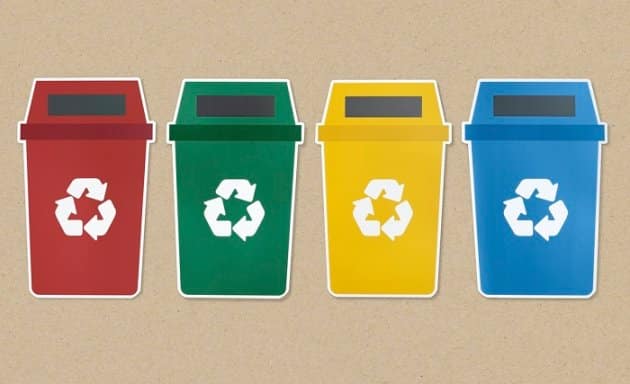It can be tough for both tenants and landlords to know which waste they are responsible for, and which they aren’t. All household waste is the responsibility of the tenant however, it is the duty of the landlord to provide bins and other sufficient ways of waste removal as well as educating the tenant on how, where, and when to dispose of their waste.
Recycling can be a challenge for tenants, especially in apartments and other shared living spaces. If you do not recycle well, you might be exposed to health problems, furniture damages, and even fire accidents.
For up to £10,000 in cover for accidental damages to a landlord’s property, renters’ insurance is a must-have for peace of mind, knowing that you’re financially protected.

Why should you be organised with recycling bins in rental properties?
Whether you are a tenant or a landlord, recycling is incredibly important for the sake of the planet. Recycling helps preserve precious natural resources by making the most out of man-made ones. It saves energy and reduces the amount sent to landfill sites whilst simultaneously creating jobs within a huge pro-planet industry.
A lack of organisation with your recycling can lead to large rubbish bins piling up and attracting pests such as mice. These pests can cause serious and irreversible damages to your furniture, and in the case of furnished rental properties, your landlords furniture.
Single-use household items are commonly made from aluminium, paper, card and glass; all which can be easily recycled. However, there are other household items which are lesser known to be recycled, and can be tricky to recycle correctly. These items are such as black plastic, dental products, clingfilm, bubble wrap, sanitary products and netting that holds fruit.
If you aren’t organised with your recycling in your property, you run the risk of adding to landfill space, contributing to more greenhouse gas emissions and running the risk of natural planet resources completely running out, according to recyclingbins.co.uk.
5 tips that help to make recycling easy and convenient at home.
Living in rented and/or a small property, can make recycling feel like an inconvenient task. Here’s how you can make recycling easy and convenient in your home:
- If you have a small space, recycling can easily build up, says experts at Clean River. Find a good location for your recycling bin, such as inside an unused pantry or cupboard space, underneath the sink, hung up on a wall or door or on a rolling cart/table.
- Section out your recycling. If you have the space, aim to have different bins/areas to put different recycling. For example, a box for all glass, a bin for all paper and a separate one for plastic.
- Create a list detailing what can and can’t be recycled, and what you must do with those tricker items to recycle.Your local council will have different rules on this, so if in doubt check their website. Use this to refer back to when recycling your household waste.
- Consider Upcycling. Upcycling is the process of turning an unwanted item, into something else that is useable. For example, repurposing glass candle jars by creating your own candles, turning old unwanted clothing into fabric gift wrap and more.
- Make it a community effort. There are facebook groups, forums and most likely your neighbours who all have a shared interest in recycling. Have discussions, make plans, share ideas to keep each other motivated with recycling.

